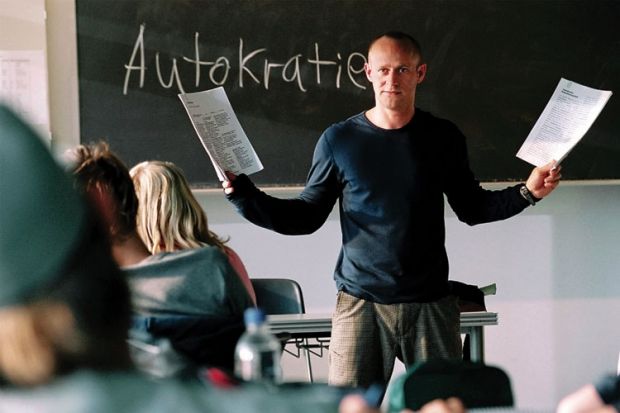In a report into languages A levels published on 17 July, the A Level Content Advisory Board (Alcab), which was set up by the Russell Group to oversee A-level content, proposes “significant changes…designed to produce a rich and rewarding qualification”.
It follows an investigation by a panel of leading academics, chaired by Stephen Parker, professor of German at the University of Manchester, which identifies five weaknesses in current modern languages A levels.
These include the tendency to re-teach subjects addressed at GCSE, a desire to not penalise grammatical mistakes and a lack of understanding of linguistic systems.
The report notes a “grave decline in the numbers studying modern languages beyond the age of 16”, saying that they have been “traditionally viewed as a difficult subject”.
But “serious deficiencies” in content have also led modern languages to be viewed as “dull and uninspiring”, it adds.
In a letter by Alcab chairman Nigel Thrift, vice-chancellor of the University of Warwick, sent on 7 July to Michael Gove, then education secretary, he says the panel wants to “re-establish modern languages” through the “revivification of content by means of critical and analytical study of literary works and of themes concerning cultural and social concerns in countries where the language of study is spoken”.
They also want “a consistent approach to the importance of linguistic accuracy as a determiner of meaning”, he writes.
The report follows calls by Mr Gove for universities to “take ownership” of A levels to restore rigour to the qualifications. However, a review of subjects by Lancaster University vice-chancellor Mark E. Smith found that most subjects were broadly fit for purpose, with only a handful requiring substantial reform, which would be led by Alcab.
As part of the Alcab reviews published on 17 July, Professor Thrift recommends some limited changes to maths and geography A-level syllabuses, but says classical languages A levels require only a small amount of fine-tuning.
In his letter, Professor Thrift adds that the AS qualification, which the government has decided should not count towards A levels but can be taken as a separate qualification, is “valuable and valued by universities”.
He adds that teachers will need training and resources if they are to be able to teach the new syllabuses by 2016.
Register to continue
Why register?
- Registration is free and only takes a moment
- Once registered, you can read 3 articles a month
- Sign up for our newsletter
Subscribe
Or subscribe for unlimited access to:
- Unlimited access to news, views, insights & reviews
- Digital editions
- Digital access to THE’s university and college rankings analysis
Already registered or a current subscriber? Login




